Python Programming Essentials
Harness the Power of Python: Where code meets simplicity!
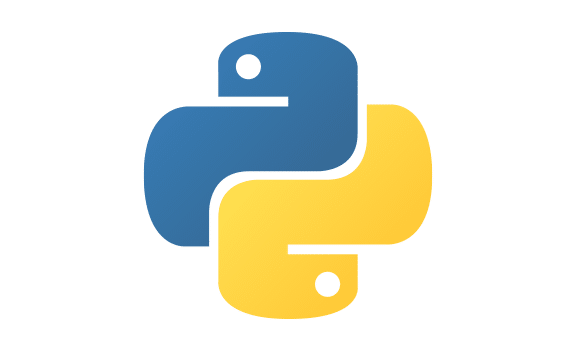
Course Overview
Most intensive 4-day Python training course in the Philippines. This comprehensive program offers a thorough exploration of Python’s syntax, object-oriented design, and diverse standard library applications.
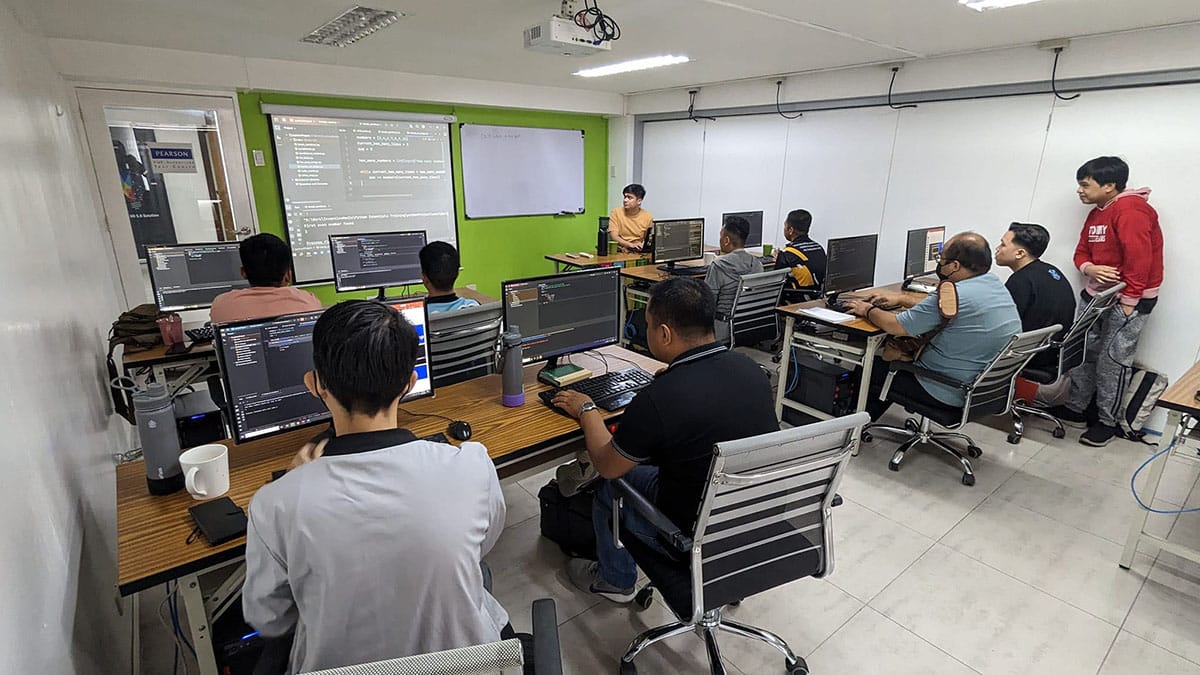
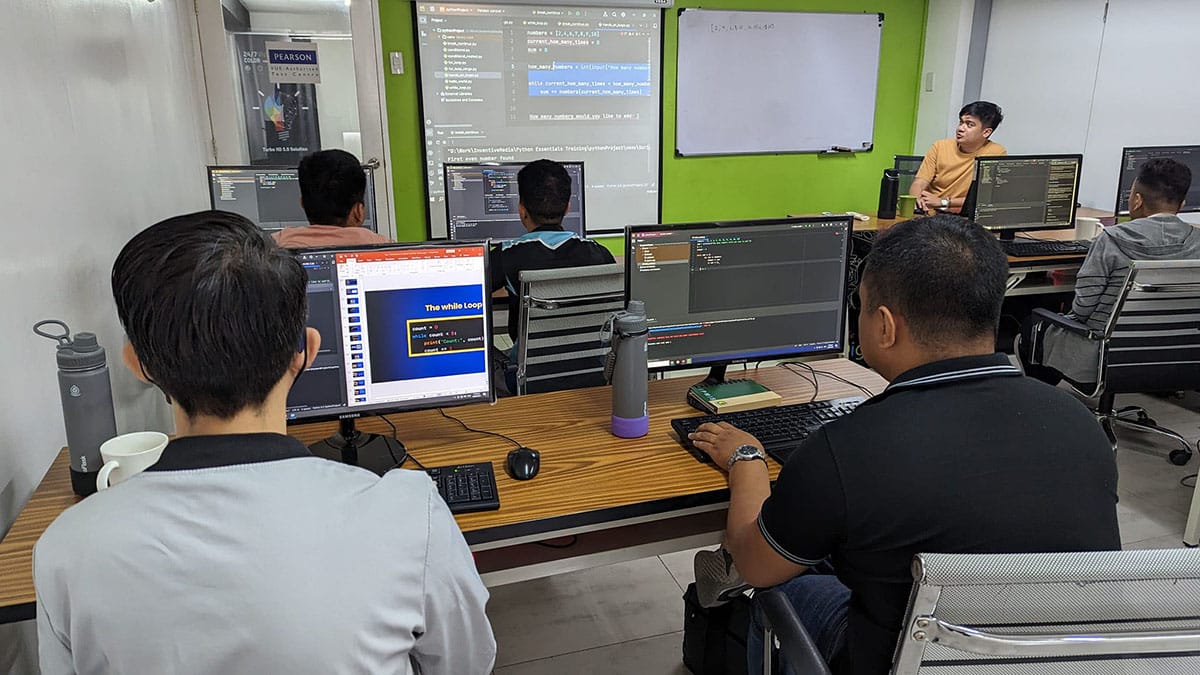
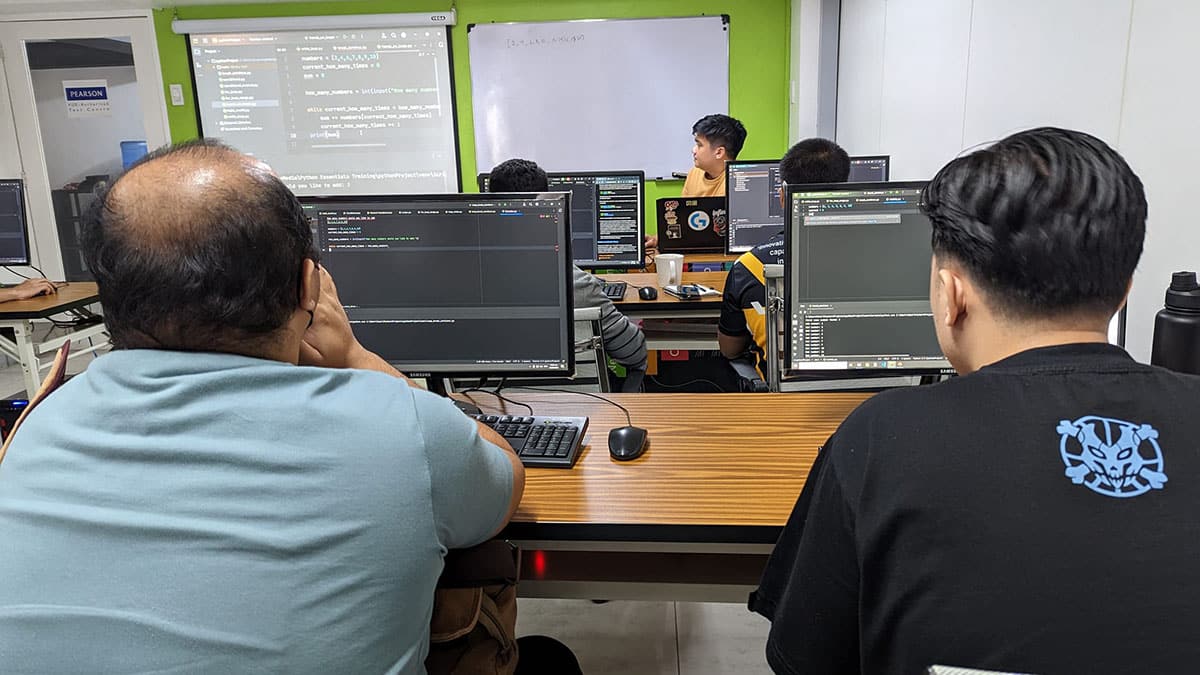
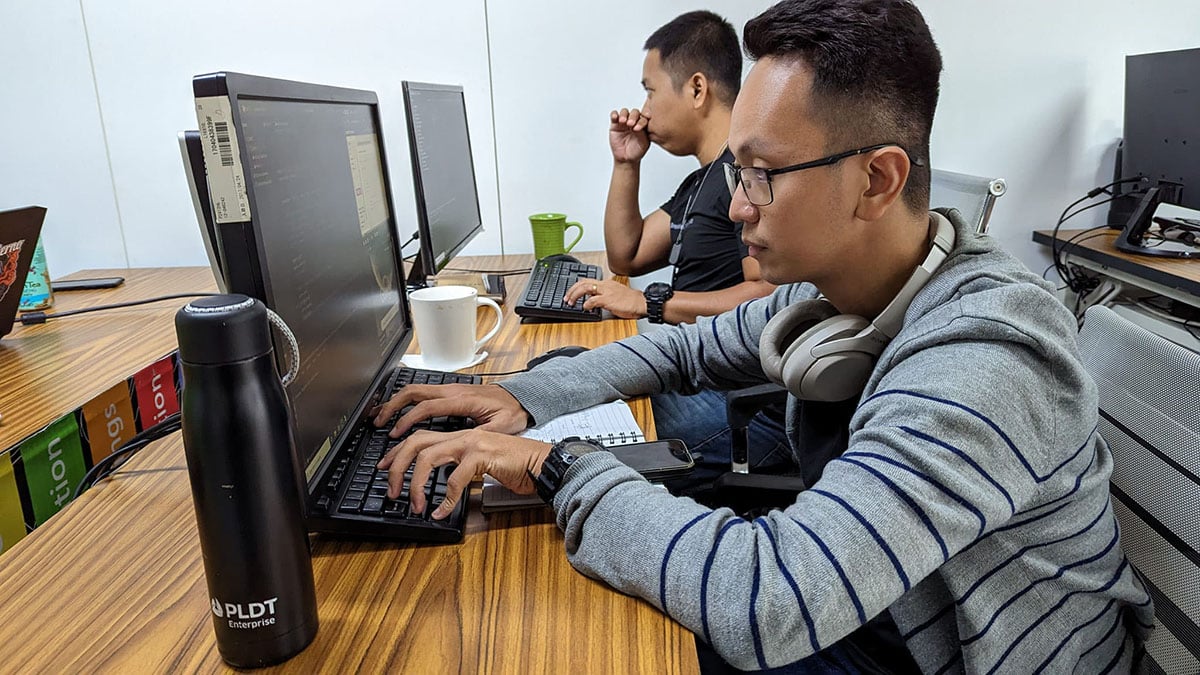


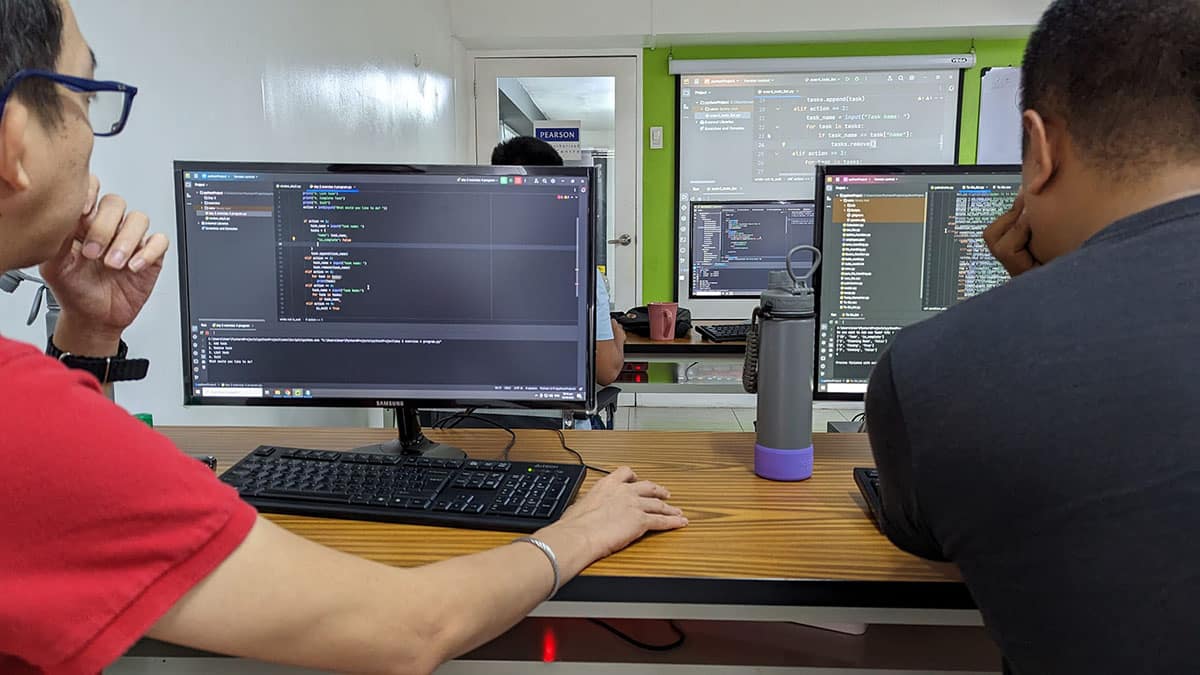

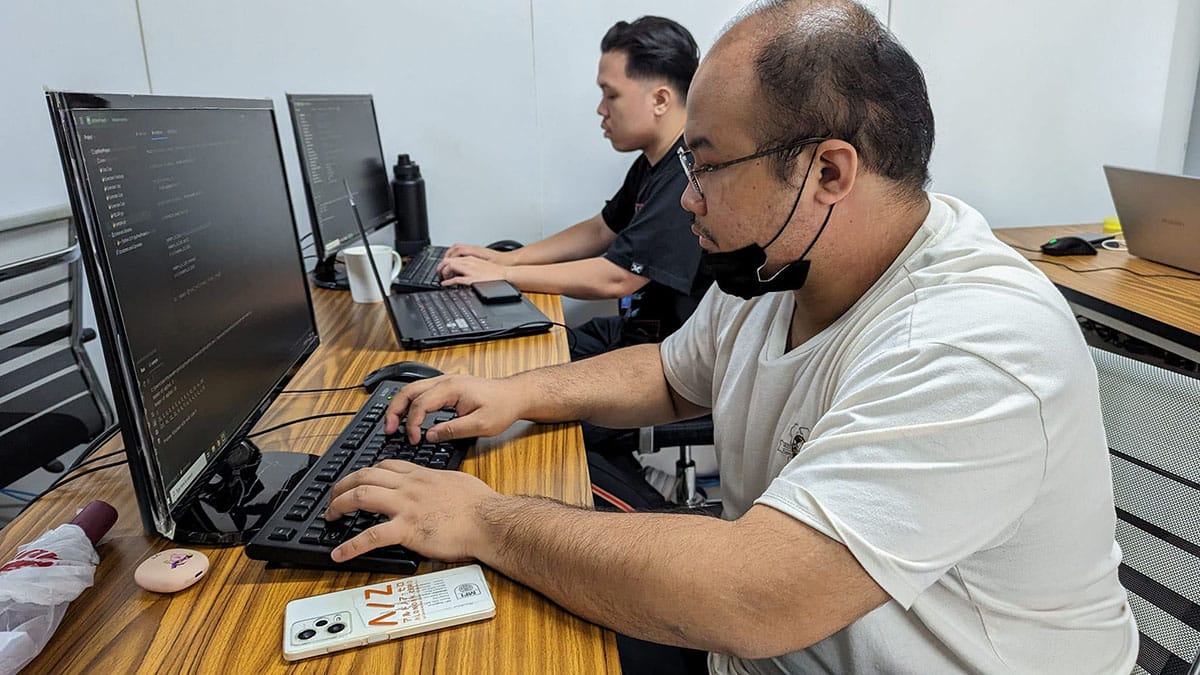
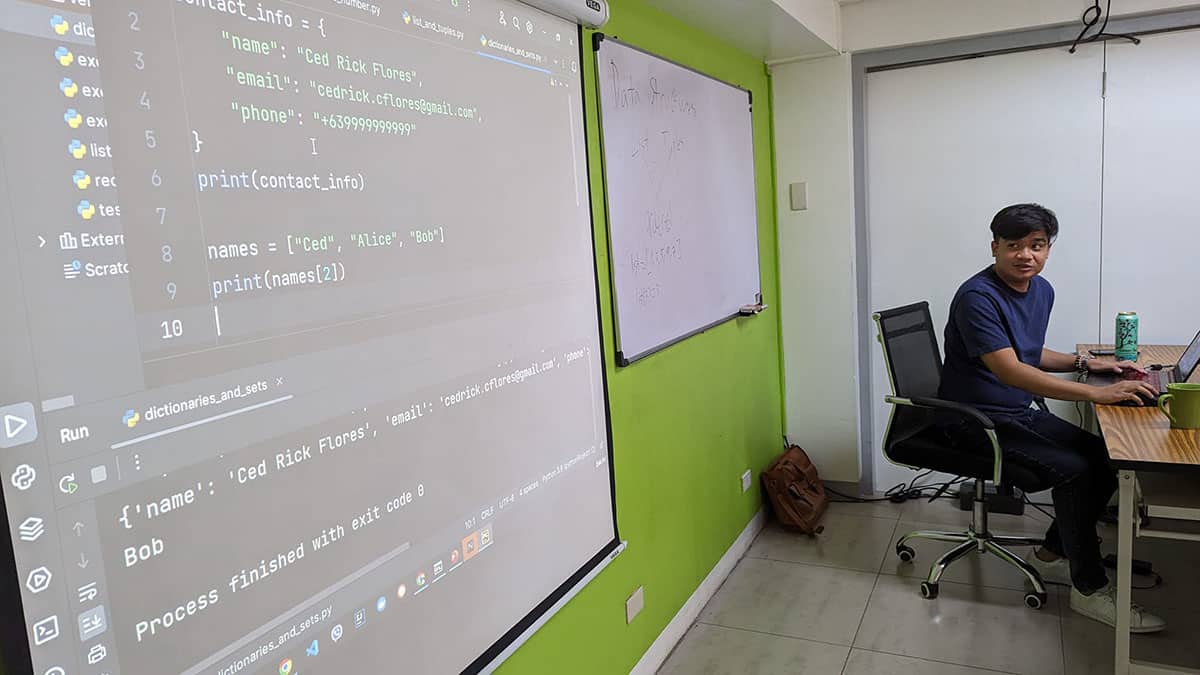

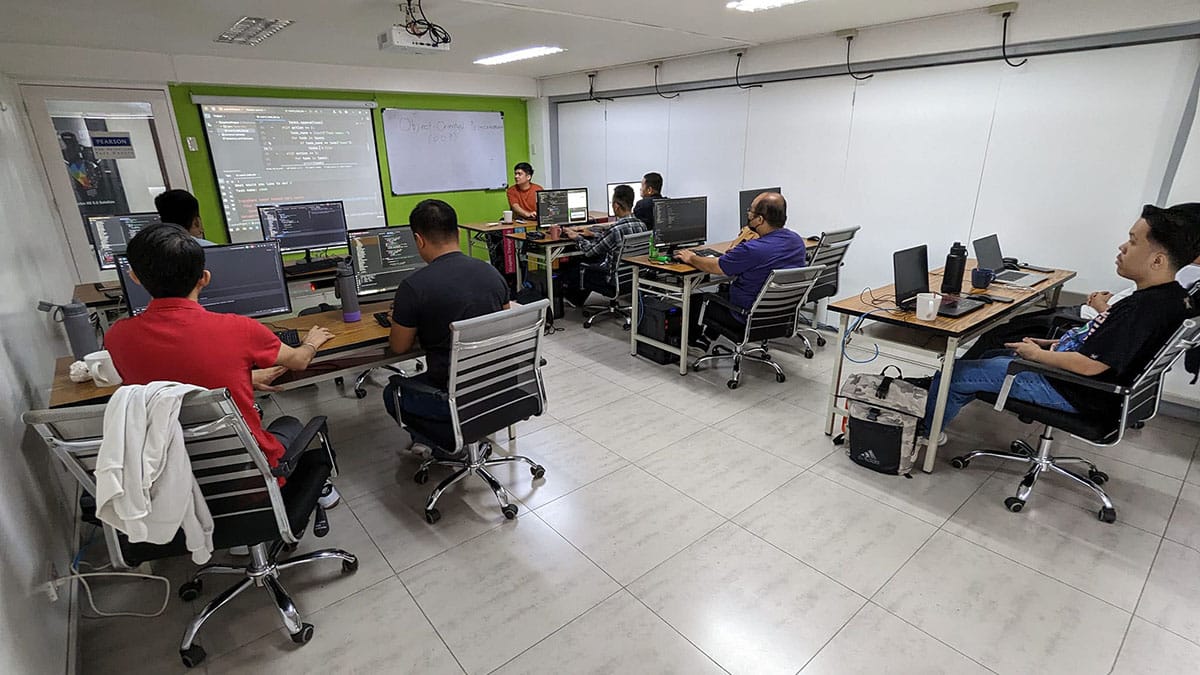
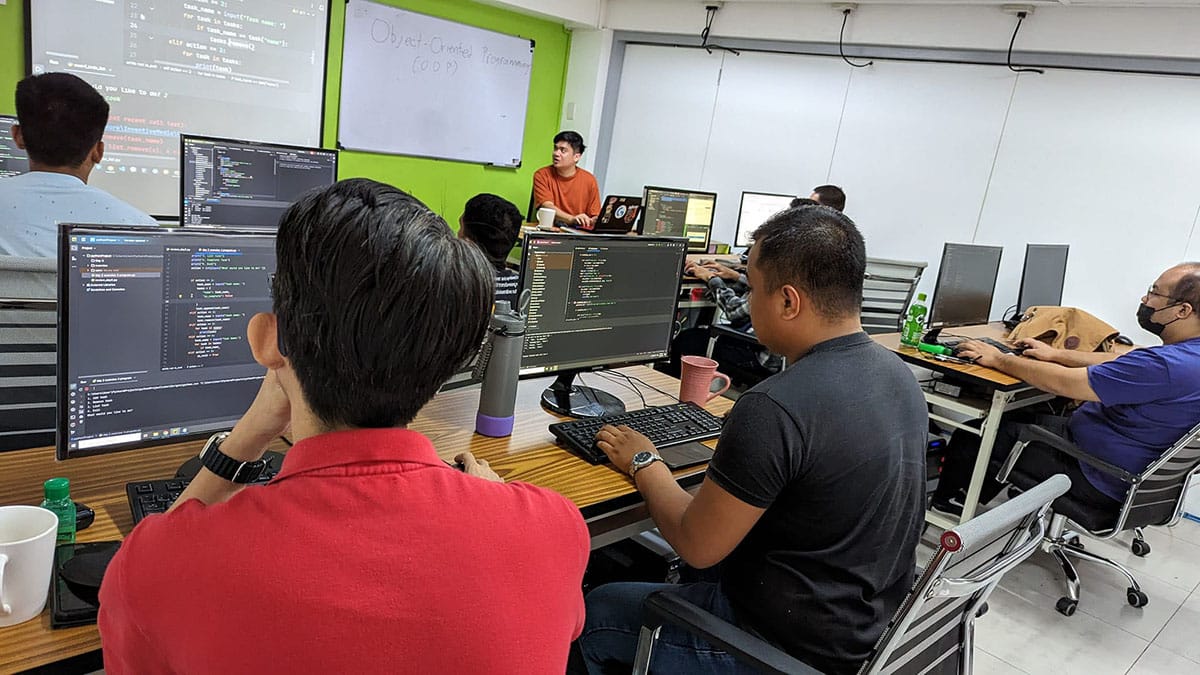

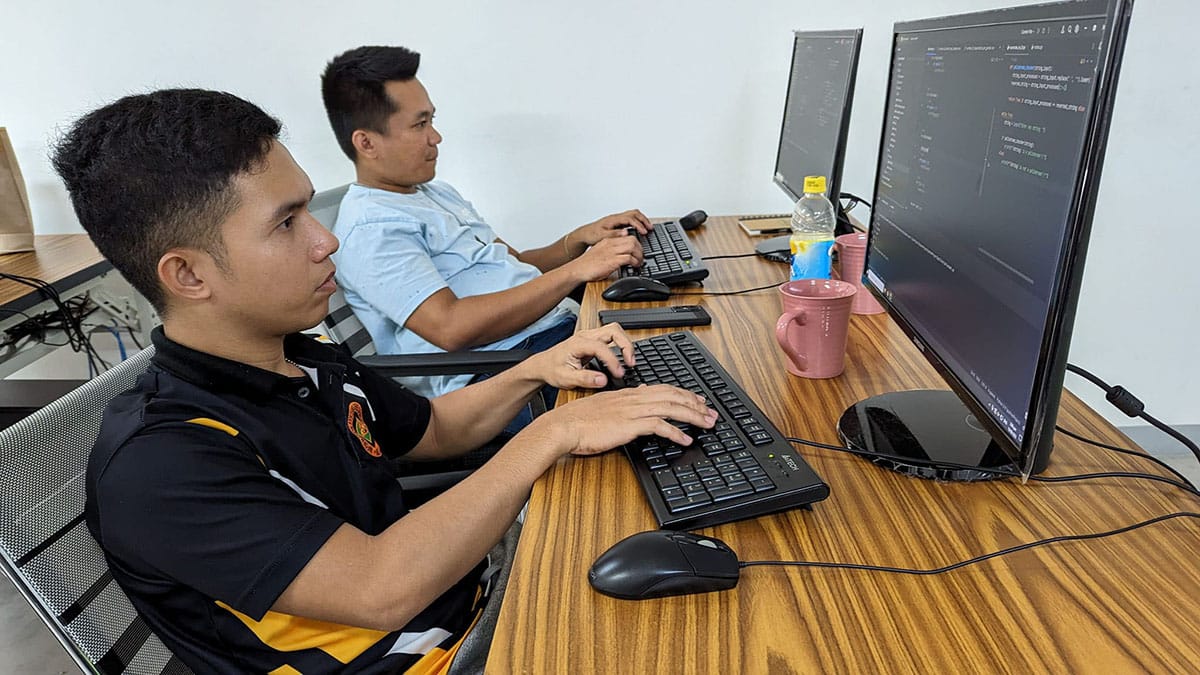
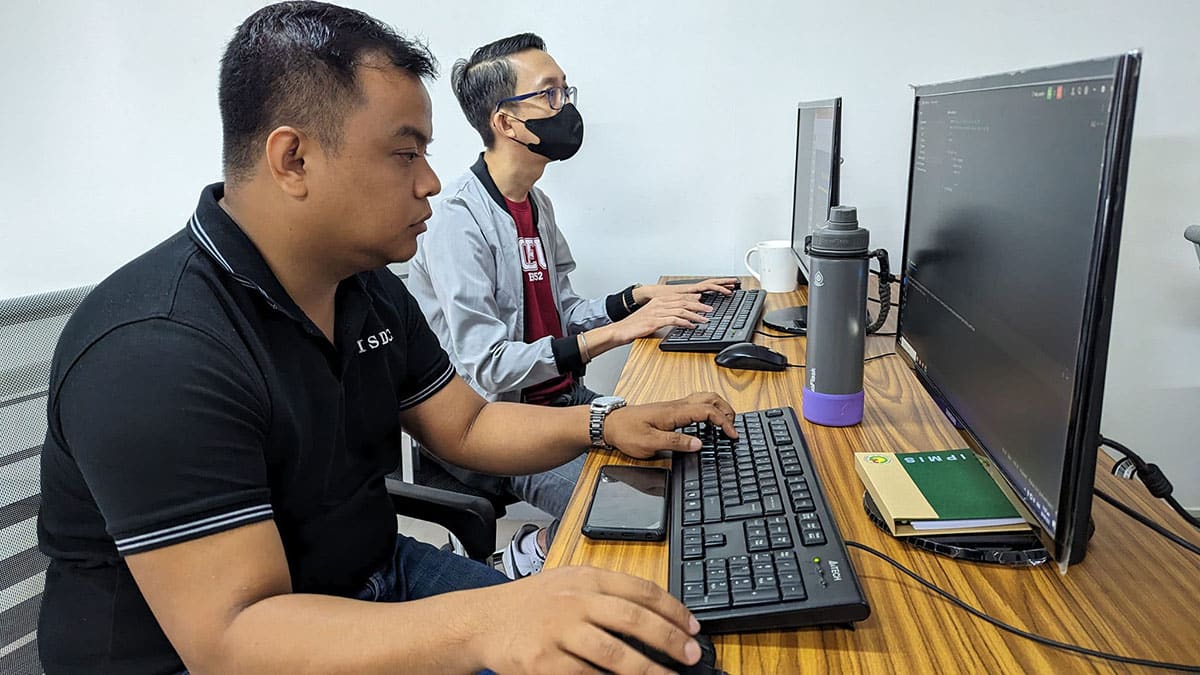
Ranked as one of the Best Schools for Web Development
- Our founder, Henry N. Ong II, is the recognized pioneer of CMS web development courses in the Philippines
- First school to offer WordPress, Joomla & Drupal Classes since 2006
- First school to offer Laravel Class since 2014
- First school to offer Bootstrap Class since 2014
- Pearson Vue Accredited Testing Partner
- PhilGEPS Accredited Center
- Globally Recognized Course Certificate
- Around 85% of government agencies and LGUs take web Development classes from us
Frequently Asked Questions
- Basic Computer knowledge and Skills in PC or Mac.
- Basic understanding of programming concepts: Familiarity with basic programming concepts such as variables, data types, loops, and functions is essential for understanding Python.
- Having some experience with programming languages like C, C++, Java, HTML, CSS or JavaScript can be beneficial as it aids in grasping Python’s syntax and concepts.
- Certificate of course completion
- Training references (PDF)
- Exercise materials
- Some add-ons
- Free trainer consultation
- Unlimited Free Retakes
Unlimited Retakes = Unlimited Hours of Learning!
We understand that individuals have different learning styles and paces, that’s why we offer the opportunity to learn at your own speed. If you need more time to grasp a concept, you are welcome to come back and retake the class at no additional cost. We believe in providing students with the support they need to succeed.
To Avail: Finish the course to qualify for the unlimited refresher classes
Validity: 1 Year
- Beginners: Python is often recommended as a first programming language due to its readability and simplicity. It’s an excellent choice for those who are new to programming.
- Students: Python is commonly used in computer science courses and is a valuable skill for students pursuing degrees in various fields, including computer science, data science, engineering, and more.
- Data Scientists and Analysts: Python is a popular language for data analysis, machine learning, and scientific computing. Professionals in these fields can benefit greatly from Python training.
- Software Developers: Python is used for web development, scripting, and automation. Software developers looking to expand their skill set can find Python training valuable.
- IT Professionals: IT specialists can use Python for tasks such as network automation, system administration, and cybersecurity.
- Researchers: Python is widely used in scientific research and academia for tasks like data analysis, simulation, and visualization.
- Entrepreneurs and Business Professionals: Understanding Python can be helpful for entrepreneurs and business leaders when making decisions related to technology and automation.
- Anyone Interested in Programming: Python’s versatility makes it accessible and useful for hobbyists and enthusiasts who want to explore programming for fun or personal projects.
- Career Changers: People looking to switch careers into tech or programming can use Python as a starting point to build their skills.
Python is an interpreted, high-level and general-purpose programming language. Python’s design philosophy emphasizes code readability with its notable use of significant whitespace. Its language constructs and object-oriented approach aim to help programmers write clear, logical code for small and large-scale projects. Python is dynamically typed and garbage-collected. It supports multiple programming paradigms, including structured (particularly, procedural), object-oriented, and functional programming. Python is often described as a “batteries included” language due to its comprehensive standard library.
Ease of Learning: Python is beginner-friendly and easy to understand, making it a great choice for newcomers to programming.
Versatility: Python is used in web development, data science, automation, and more, making it a versatile language.
Large Community: A vast community of Python users means abundant resources and support.
Readability: Python’s clean syntax and structure make code easy to read and maintain.
Career Opportunities: Python skills are in high demand, offering excellent job prospects.
Course Outline
Day 1: Introduction to Python and Basic Syntax
Introduction to Python Programming
- Course Introduction
- What is Python?
- Python’s history and popularity
- Hands-on: Setting up Python environment
Python Basics
- Python syntax and indentation
- Variables and data types
- Input and output in Python
- Hands-on: Writing simple Python programs
Control Flow
- Conditional statements (if, elif, else)
- Loops (for, while)
- Hands-on: Implementing conditional logic and loops
Functions in Python
- Defining and calling functions
- Parameters and return values
- Scope and lifetime of variables
- Hands-on: Creating and using functions
Error Handling
- Understanding exceptions
- Try, except, and finally
- Handling common exceptions
- Hands-on: Writing error-handling code
Lab Session
Day 2: Data Structures in Python
Lists and Tuples
- Creating and modifying lists and tuples
- Slicing and indexing
- List and tuple methods
- Hands-on: Manipulating lists and tuples
Dictionaries and Sets
- Working with dictionaries
- Sets and set operations
- Use cases for dictionaries and sets
- Hands-on: Working with dictionaries and sets
String Manipulation
- String operations and methods
- String formatting
- Regular expressions (basic)
- Hands-on: String manipulation exercises
File Handling
- Reading and writing files in Python
- File modes and operations
- Working with CSV and JSON files
- Hands-on: File manipulation tasks
List Comprehensions
- Introduction to list comprehensions
- Creating and using list comprehensions
- Hands-on: List comprehension tasks
Lab Session
Day 3: Object-Oriented Programming (OOP)
Introduction to OOP
- Understanding the principles of OOP
- Classes and objects
- Constructors and attributes
- Hands-on: Creating and using classes
Inheritance and Polymorphism
- Creating subclasses and superclasses
- Method overriding
- Polymorphism and dynamic typing
- Hands-on: Building an inheritance hierarchy
Encapsulation and Abstraction
- Access modifiers (public, private, protected)
- Encapsulation and data hiding
- Abstract classes and methods
- Hands-on: Implementing encapsulation and abstraction
Exception Handling in OOP
- Custom exceptions
- Handling exceptions in object-oriented programs
- Hands-on: Custom exception creation
Building Graphical User Interfaces (GUIs)
- Introduction to GUI frameworks (e.g., Tkinter, PyQt)
- Creating basic GUI applications
- Hands-on: Developing a simple GUI application
Lab Session
Day 4: Advanced Python Topics with GUIs and Websites
Modules and Packages
- Importing modules and packages
- Creating and using your own modules
- The Python Standard Library
- Hands-on: Building and importing modules
Web Development with Python
- Introduction to web frameworks (e.g., Flask, Django)
- Building a basic web application
- Hands-on: Developing a simple website
Multithreading and Multiprocessing
- Introduction to concurrency
- Threading vs. multiprocessing
- Practical use cases
- Hands-on: Multithreading and multiprocessing examples
Python Best Practices
- Coding style and PEP 8
- Documentation and comments
- Testing and debugging
- Hands-on: Code review and improvement
Final Project
- Developing a complete Python project (including a GUI or web component)
- Open discussion, questions, and further resources
- Closing Remarks
Premium Experience
- Fully Air-Conditioned Training Rooms
- Workstation for Every Student
- Free Coffee & Fast WiFi
- Lifetime Access to Online Consultations
- Unlimited FREE Class Retakes
Single Course Discount
About the Registration
Feel free to register! Registering does not commit you to paying for the course immediately. Registration helps us track attendee numbers and enables us to stay in touch. Payment will only be requested once the course is confirmed to proceed.
Note: When choosing a schedule, you are limited to the available training dates posted on our website.